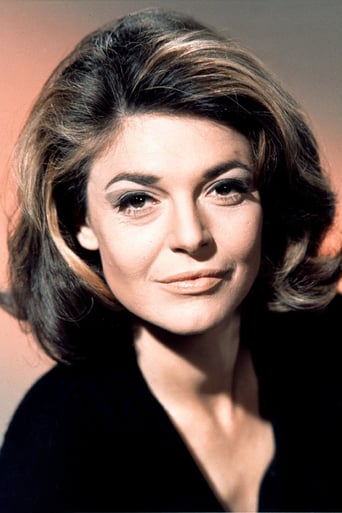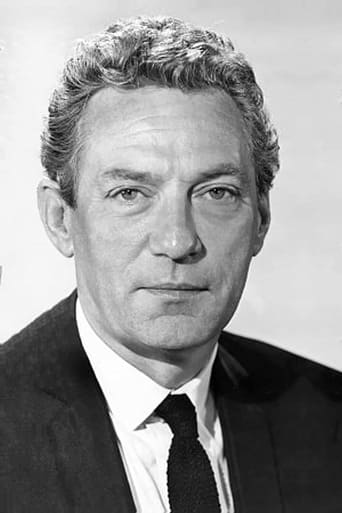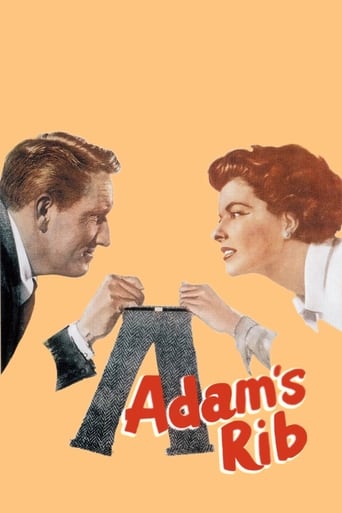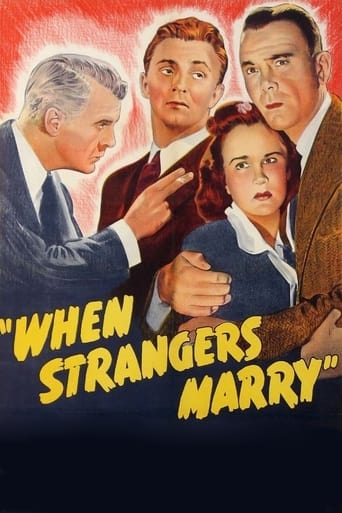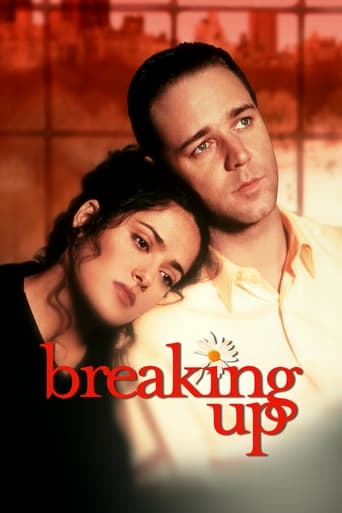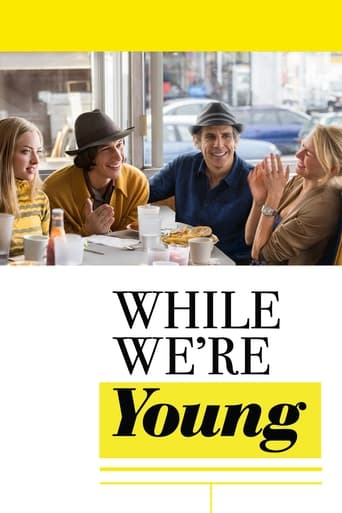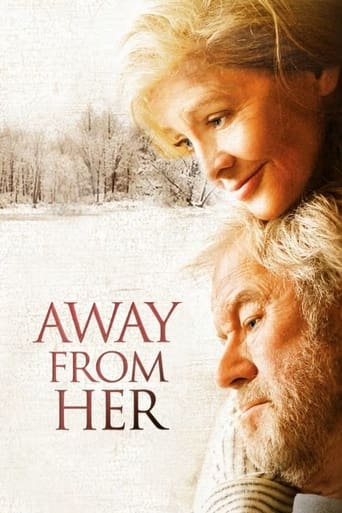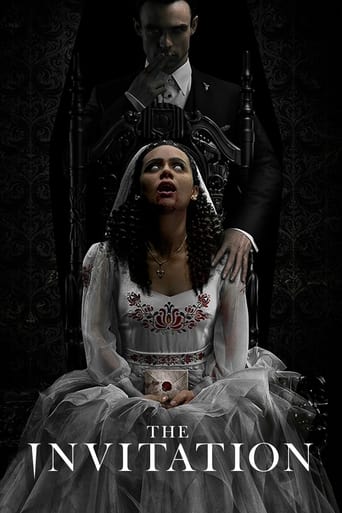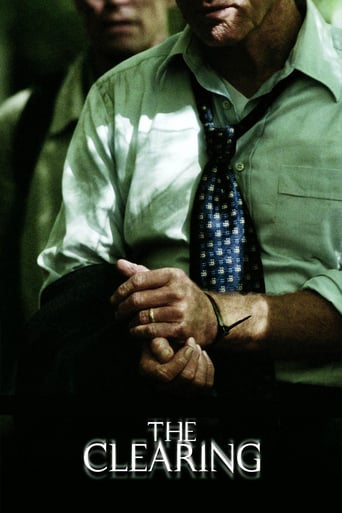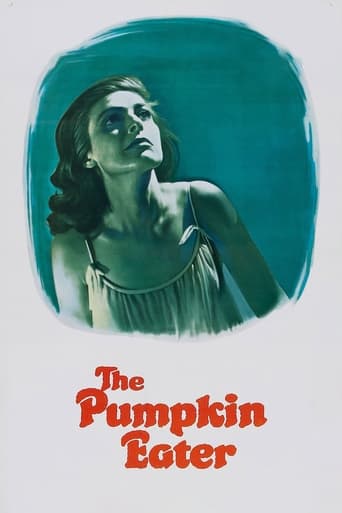
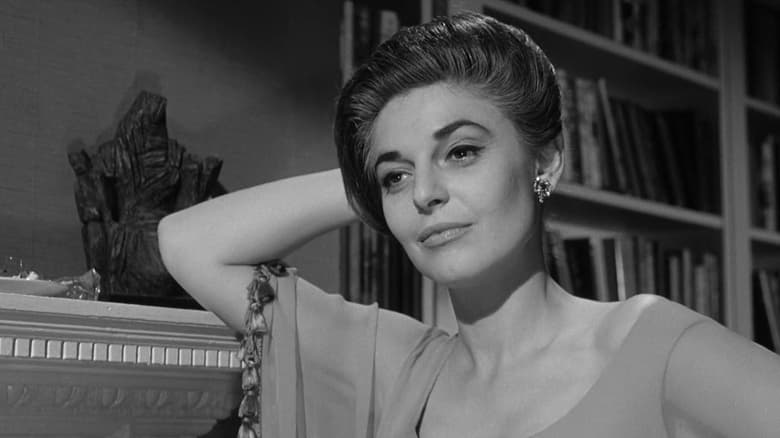
The Pumpkin Eater (1964)
Jo, the mother of seven children, divorces her second husband in order to marry Jake, a successful but promiscuous screenwriter. Though they are physically and emotionally compatible, they are slowly torn apart.
Watch Trailer
Cast


Similar titles
Reviews
I owe this movie a disclaimer before giving it a scathing review: I turned it off. I didn't see The Pumpkin Eater all the way through, so I have no idea if the second half or the end redeems the terrible beginning. Anne Bancroft was nominated for Best Actress at the Oscars for her role as a depressed, repressed housewife in this dark, slow, drama. She's married to Peter Finch, and while he continually cheats on her, she's in therapy to try and figure out why she's so unhappy. By the time I turned it off, she'd started discussing her aversion to sex and her unfulfillment in her marriage. I only saw one expression on Anne's face, as if she'd just gotten a shot of Botox in her forehead, and since I'd expected more from this critically-acclaimed performance, I turned it off. Despite the supporting cast of James Mason, Maggie Smith, Cedric Hardwicke, and Janine Gray, I wasn't even remotely tempted to keep watching. As a side note, I also turned off The Happy Ending, a film starring Jean Simmons who tries to figure out why she's chronically unhappy in her marriage. These types of movies are not my favorite. If you like them, feel free to disregard my opinion.
It seems I have always been aware of this movie...it's strange title was one I'd heard even as a kid. But I only recently saw it for the first time, some 46 years after it was made.This strange little drama, written by Harold Pinter, has a performance by Anne Bancroft that is simply astounding. Beautiful and full of life, she is absolutely riveting in this part. Peter Finch is sly and attractive as her husband, and the two are extremely plausible as conflicted, complicated lovers.The movie is nicely shot, directed with obvious care and attention to detail, and the writing has an odd, menacing, off-kilter vitality. But it's Bancroft's remarkably strong and beautiful performance that makes this unmissable.
A husband's unfaithfulness triggers his wife's depression. Jo (Anne Bancroft), already a parent of five children, marries Jake Armitage (Peter Finch) and is devastated when he has sex with her best friend. Since this is an early sixties pre-feminist film, it doesn't occur to any of the characters that at least part of Jo's problems may stem from the fact she isn't allowed any real role in life except that of being a wife and mother. As was so common with marriages at the time, she's way too over-involved in her husband and her self-esteem rises and falls according to his moods. Jo's in a double bind. If she were to look for a role outside of the home, she would be accused of being unable to accept her feminine role. Even though Jo's sent to see a psychiatrist, Jake has his own problems. Why in the world would he marry a woman obsessed with child-bearing and then complain about his lack of privacy and the fact that she wants to get pregnant again? Her pregnancies may be a way of self-medicating her depression. Jo is completely invested in her role as a mother, but her depression makes her unable to truly love and care for her children. Her oldest daughter becomes her surrogate parent and has the sad job of being perpetually cheerful and competent as she tries to cheer up Jo. Despite being a lousy husband, Jake is good dad. He co-opts her in her relationship to her kids.This very dated film demonstrates how femininity itself was treated as a chronic disease. There's a great scene where Jo wanders around Harrod's, surrounded by scenes of female consumption where the women's faces and bodies are interspersed with those of blank-faced mannequins. The images reflect not only Jo's feelings of emptiness, but also reflect the negative cultural attitudes towards women that were so prevalent at the time. To please Jake and thinking it will save her marriage, Jo gets an abortion and has her tubes tied. But he continues to philander. The couple buy and renovate an old windmill that's missing its blades. It stands for the ultimate unsustainability of their marriage; a kind of marriage that is running out of steam as the sixties progress. This is a beautifully photographed and well-acted film with a lovely musical score.
A very interesting portrait of mental illness in the 1960's. I would trust no one other than Pinter with this task given the period.As I heard depression was a word unspoken during this period. The film also gave interesting tints of the sixties but in terms of the mental health I would have liked it if Harold pinter gave more detail. But certainly it was true that Jo Armitage wasn't falling over herself to commit suicide. There was a certain element of ennui in terms of mental illness that certainly isn't present in today's films.I thoroughly enjoyed this latter aspect and am still looking for its turn of the millennium parallel...


